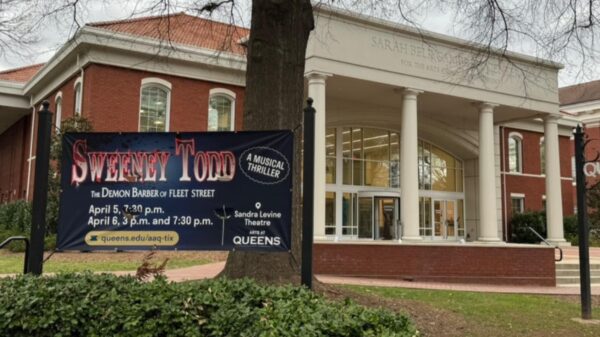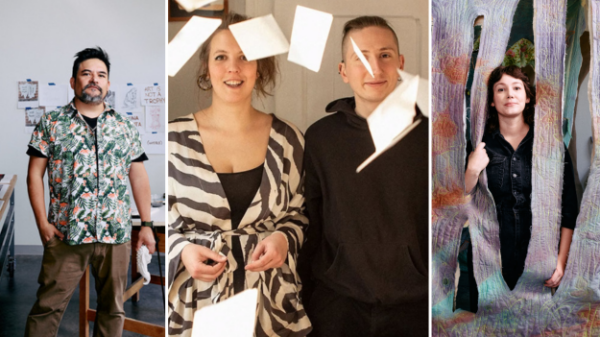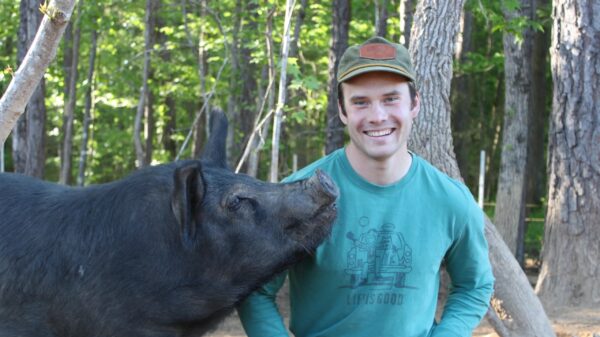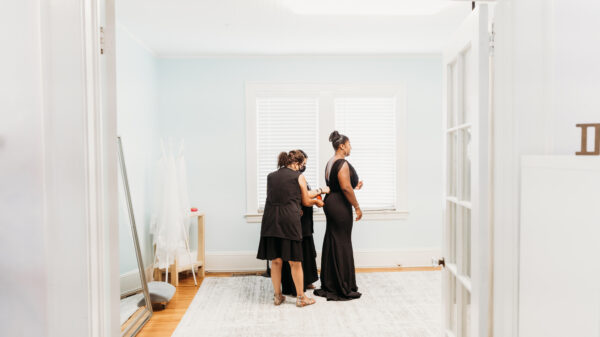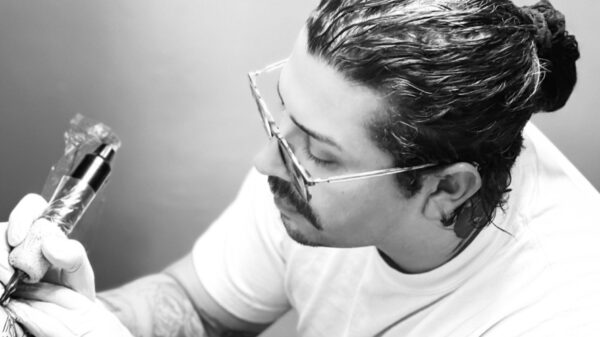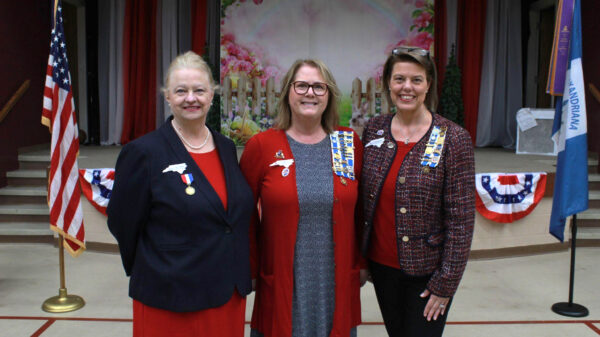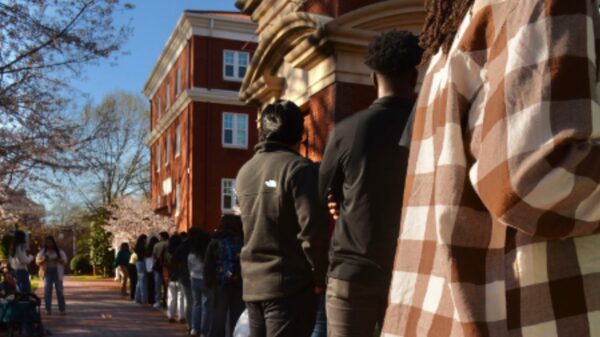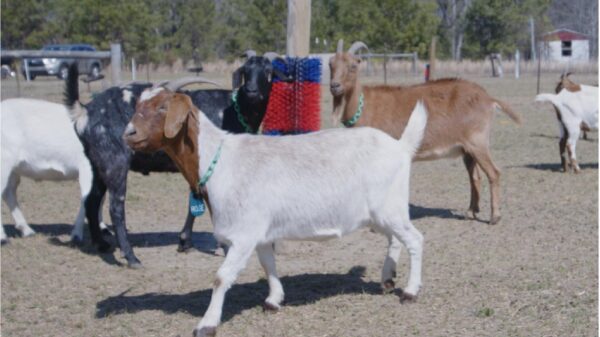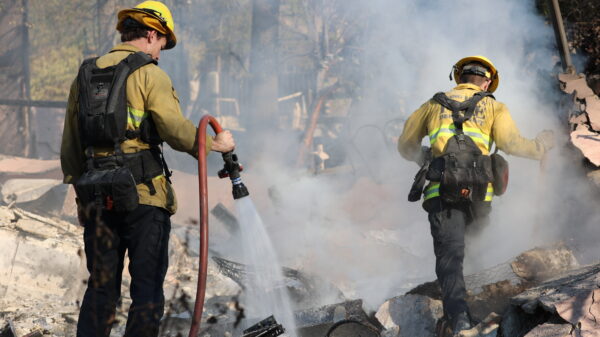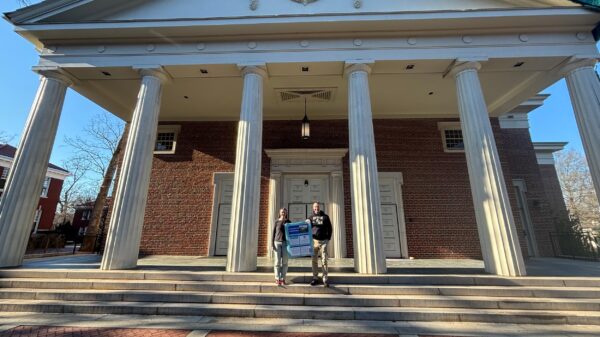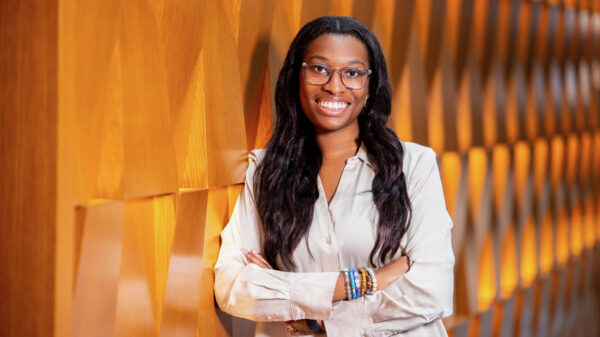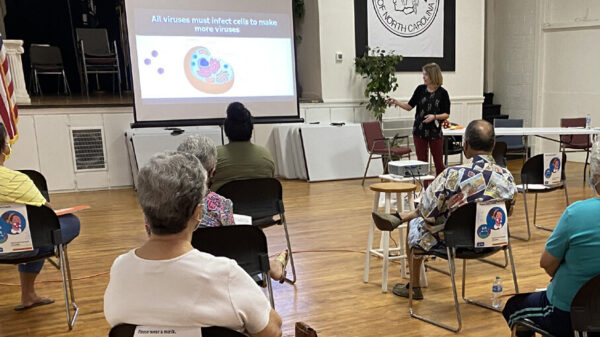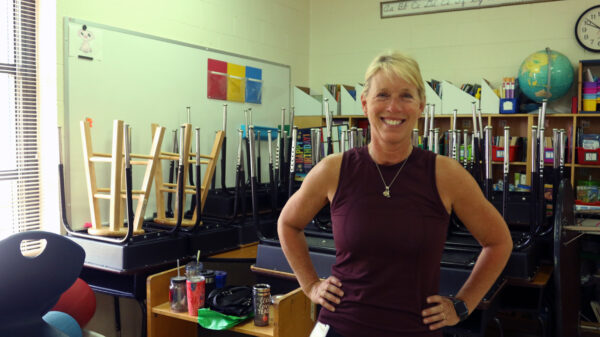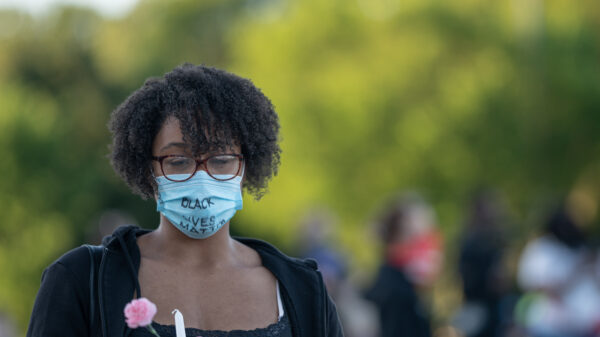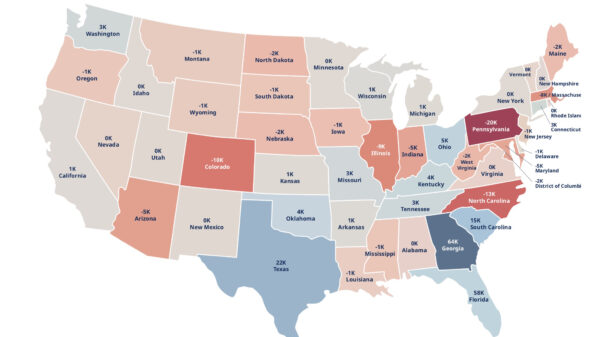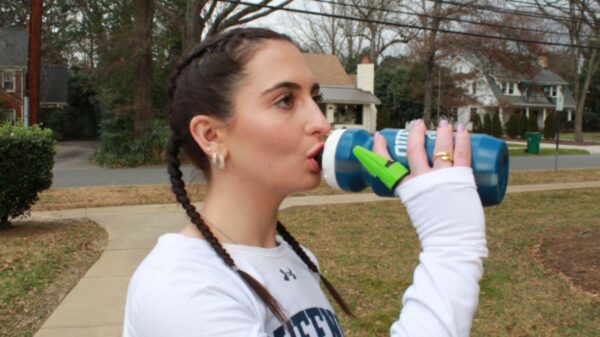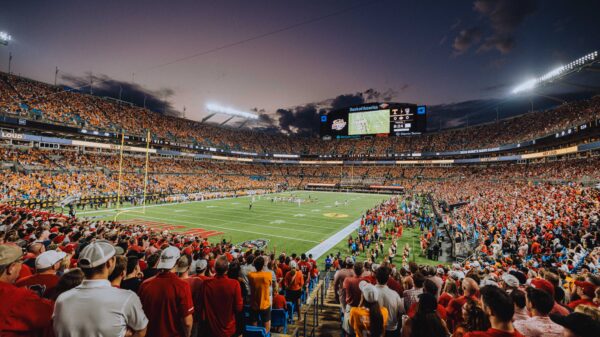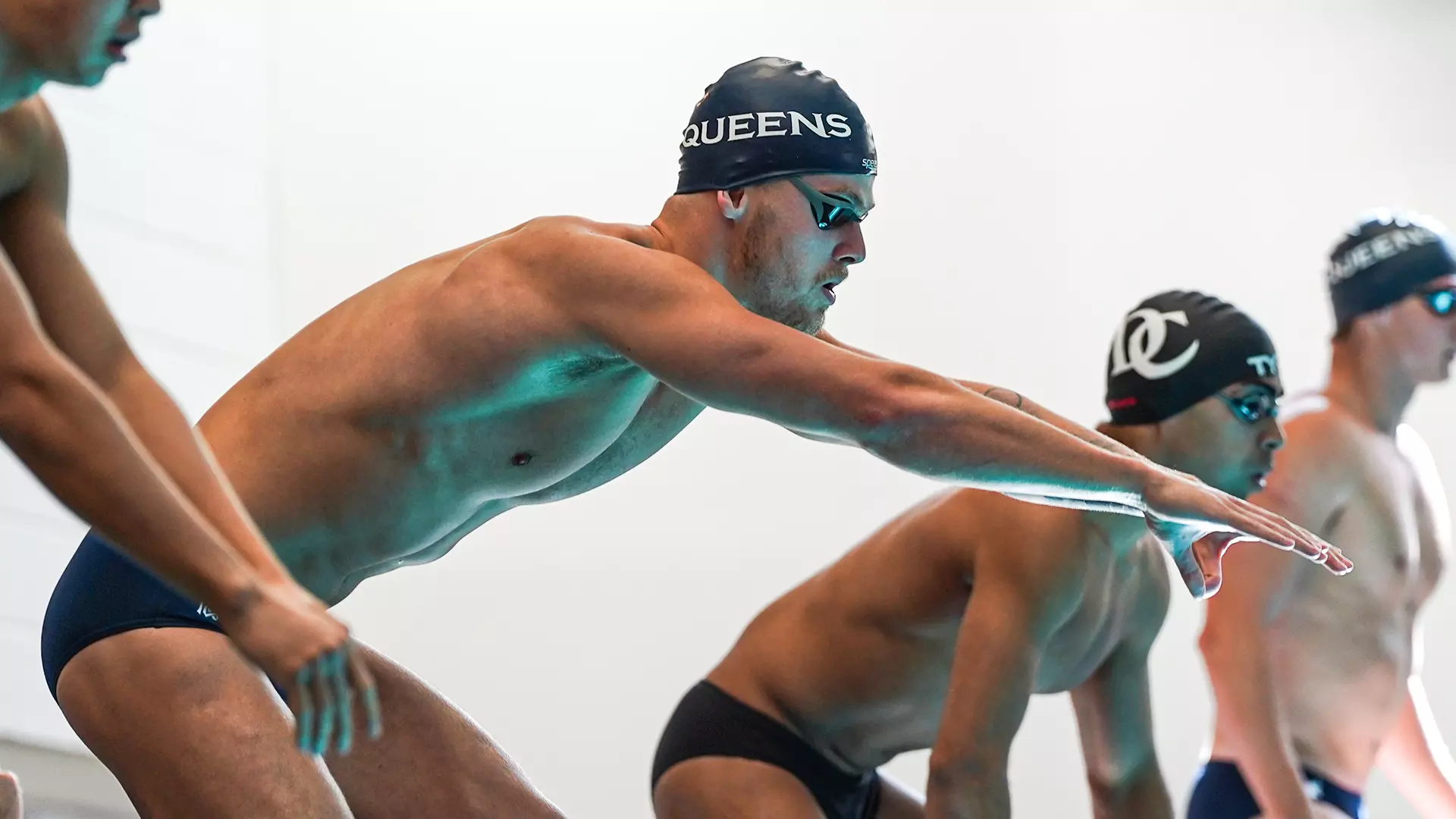They say that dreams come true in America.
Anything is possible in the land of unlimited opportunities. But is this true?
It certainly was the case for Queens University of Charlotte swimmer Matej Duša. Growing up in Slovakia, Duša had to leave his home country and move to the U.S. to achieve his dreams of becoming a world-class swimmer. But let’s tell his story from the beginning.
In 2004, four-year old Duša and his brother Ondrej Duša discovered that they suffered from immunity issues. A doctor told their parents that they must start being more active. In that moment, Duša’s parents put them both into swimming and it is why they have been swimming ever since.
“When I was eight years old, I had my first competition. I was trash, I was so bad, and everyone was beating me,” said Matej Duša. At that time, swimming was only just a hobby for Duša – an excuse to be more active. His parents also saw the benefits of sending both their children to swim: “They realized that we came back home tired, and they made us swim more,” Duša recalled.
With more training came more success. As time passed, 16-year-old Matej Duša made it onto the Slovak National Team – the first sign that “he was getting better”, as he said. When Duša was in high school, swimming turned from being just a hobby, to becoming a part of his identity and personality. “Everyone knew me just as “the swimmer.'”
Duša trained hard, 11 to 12 times a week, sometimes two to three sessions a day. And this all well before his 18th birthday. Since it was such a big part of his life, Duša tried to get better and better at it. That was the time when he started to focus on the 50-meter and 100-meter freestyle races, the events he is still swimming today.
In 2018, Duša had the chance to go to international competitions like the Youth Olympic Games in Buenos Aires, the European Junior Championships, and the World Cup. Even though there were many other, better swimmers, these were priceless experiences for Duša. It was also at this time when he started to take swimming more seriously and slowly started to think about coming to the U.S. to focus on his sports career.
“Anywhere else in the world, especially in Europe, you do not have the system where you can go to school and train at the same time. The conditions in the world are nowhere as advanced as in the U.S.,” said Duša. He chose Queens University of Charlotte, where he attends today. “The first year I came to Queens, I broke the national record in Slovakia for the first time and beat everyone back home.” The tables were turned.
The list of winning competitions got longer and longer. Duša broke national records, and according to Swimcloud collegiate rankings, is the top-rated male swimmer in the Atlantic Sun Conference. “After one year at Queens, I went from being a little bit above an average swimmer in Slovakia to competing against the best ones in the world,” said Duša. Despite all this success, Duša did not feel he was ready to compete at the Olympics in Tokyo in 2020. At 20 years old, the pressure was too high, and the competitors were too good. However, giving up was not an option. The Olympic Games would be back in four years. Paris 2024 was in his sights.
There were some big changes heading into this year. A new assistant coach, Elliot Ptasnik, had experience with international swimming, and brought a fresh insight for Dusa. With his help, Duša’s swimming skills moved up to another level. At that time, he also had the chance to train and learn from Andriy Govorov who holds the world record in 50-meter butterfly and Marius Kusch, who’s greatest success was the 2019 European Championship title in the 100-meter butterfly. They both trained at Queens for a short period of time this season.
“They pushed me to a different level than I could do in the college setting,” said Duša. This time, Duša felt different than four years ago. He felt that he was ready to compete in the Olympics in Paris. He was good enough to perform well. That was at least what he thought. But it turned out differently – from his point of view. Duša trained hard for the Olympics, even harder than he did for other competitions. The question was always: How can we go from good to great? That was the mindset. And he got better and better.
“When I started the first meet, I finished with a time of 22.9. In the second meet, I had 22.6. In the third meet, I had 22.4. Five weeks before the Olympics, in the fourth meet, I had 22.2. I knew I was in the right place – I was on the top of my game with everything,” said Duša.
All this preparation paid off. Now he just had to show it at the Olympics with the world watching. Paris came closer and so did the competition where he had one chance to show off.
The day of the days came and Duša did not feel any stress at all. He was just enjoying the moment – a moment he never experienced before: “There were 15,000 people, everyone was just so loud, and I could see my flag, the Slovakian one. I was literally smiling the whole time,” recalled Duša. He felt he did everything in that moment. It was his time.
“But right when I dove into the water, I knew the race was over for me – I knew I was not performing well,” said Duša. In swimming, you are the fastest when you jump in, and the only goal is to not lose speed. According to Duša, when you lose speed, you cannot get it back.
“Those 22 seconds were painful,” he said. He finished in 39th place, with a time of 22.64 seconds. “I knew if I took a half an hour break and did it again, I could swim it faster than that.”
But he only had one chance. One opportunity to show everyone everything he had worked so hard for – not only in the past weeks but his whole life. “I realized that this does not represent me as a person and not me as a swimmer. Now I can just be proud that I am an Olympian and this stays with me forever,” said Duša. Even if it did not turn out as he had dreamed, he now has great memories. In the end, those are nearly as important and as valuable as a gold medal.
Duša is also a graduate student with a double major in math and data analytics. Combining those two worlds, a focus on sports and academics is sometimes harder than it seems. “You have to have the routine and know when it is the time to train and when it is time to study,” said Duša. That is when you must set priorities – they are important. “It is weird to say but there are 24 hours in a day, and you can fit a lot in there,” he said.
There is another piece of advice that Duša would give other student-athletes, and this is journaling. If he did not feel good after practice he would write things down. “Maybe I can find some reasons which I can change in the future to avoid that bad feeling,” he said. “To find out what is stopping you is the first step to take which can lead to greater success.”
Even if Duša has already achieved a lot, there is still a lot to come.
One of his future goals is to compete in the 2028 Olympics in Los Angeles. “I will see that as the full-circle, where I went from trying to get into the Olympics in Tokyo but did not make it, to attending in Paris but not performing as I wanted to, to going to Los Angeles as a well-known swimmer,” said Duša. He also has big plans for his professional career: working in the United States.
After 20 years of swimming, Duša has already been through a lot of ups and downs and has always stuck to one motto: giving up is not a solution.
“It was a long way to get there,” he said. Obviously, like most of the time, the highest mountains can have the greatest views. But they are harder to climb. Or in other words, the most beautiful islands can be further away. You just need to swim longer. And faster. Maybe even less than 22 seconds.
Queens University News Service stories are prepared by students in the James L. Knight School of Communication with supervision and editing from faculty and staff. The James L. Knight School of Communication at Queens University of Charlotte provides the news service in support of local community news.
-
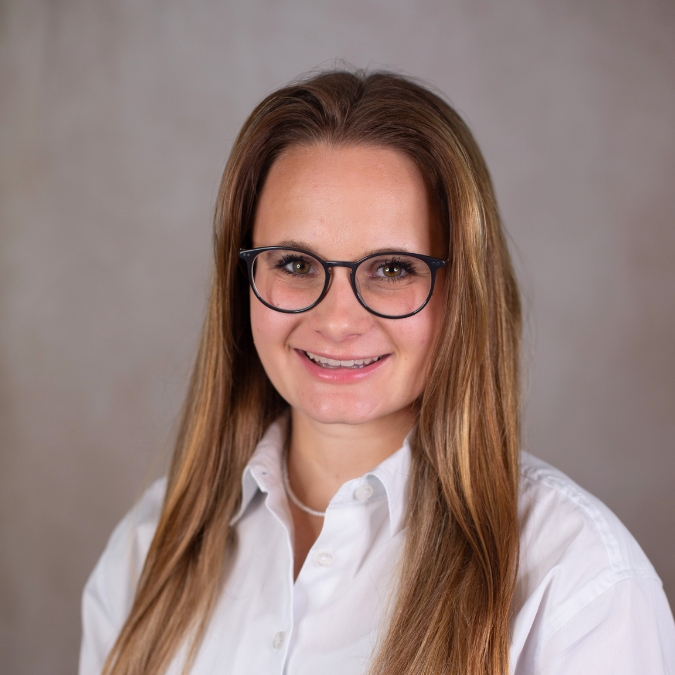
Fabienne Gnos of Altendorf, Switzerland is a Communication Major in the James L. Knight School of Communication at Queens University of Charlotte. Fabienne is an exchange student from the University of Fribourg in Switzerland.
View all posts


